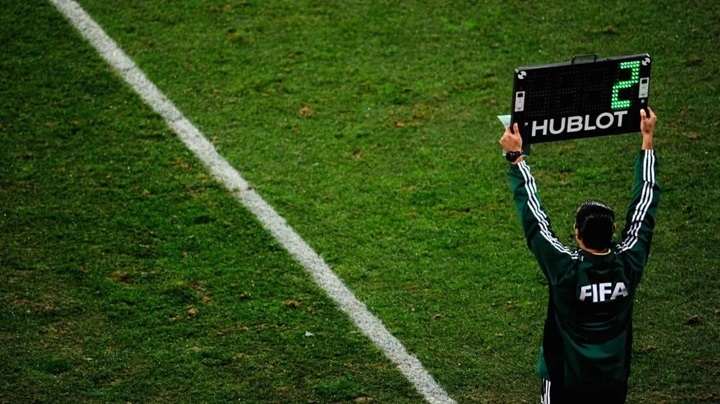Football, known as the “beautiful game,” captivates millions around the world with its fast-paced action, strategic depth, and dramatic moments. But amidst the excitement of goals, tackles, and celebrations, one question often arises: how long does a football game actually last? This article delves into the intricacies of football game duration, breaking down the factors that influence game length and providing insights into what fans can expect.
The Standard Duration of a Football Game
90 Minutes: The Core of the Game
At its most basic level, a football game consists of two halves, each lasting 45 minutes, totaling 90 minutes of play. This structure is a fundamental aspect of the sport, providing a balanced framework for teams to compete. The 45-minute halves are designed to offer each team a fair opportunity to attack and defend, creating a dynamic and engaging game.
Halftime Break: A 15-Minute Intermission
Between the two halves, there’s a 15-minute halftime break. This intermission allows players to rest, receive tactical instructions from their coaches, and recover before the second half begins. For fans, it’s a moment to reflect on the first half’s action and prepare for the remainder of the game.
Factors Influencing Game Duration

Injuries and Stoppage Time
One of the primary factors affecting the duration of a football game is stoppage time, added by the referee to compensate for interruptions such as injuries, substitutions, and delays. The amount of stoppage time can vary significantly from game to game, depending on the number and nature of interruptions. On average, stoppage time is usually between 1 to 5 minutes per half, but it can be longer in cases of extensive delays.
Extra Time: When the Game Needs a Decider
In knockout competitions and certain other scenarios, a football game may extend beyond the standard 90 minutes if the score is tied. This leads to the addition of extra time, consisting of two 15-minute halves. The primary goal of extra time is to determine a winner if the game is tied after the regular 90 minutes. If the score remains level after extra time, the game may proceed to a penalty shootout to decide the winner.
The Impact of VAR (Video Assistant Referee)
VAR and Its Effect on Game Duration
In recent years, the introduction of the Video Assistant Referee (VAR) system has impacted the duration of football games. VAR is used to review key decisions made by the on-field referee, such as goals, penalties, and red cards. While VAR aims to ensure accurate decision-making, it can add additional time to a game due to the review process. This can result in longer stoppage times and overall game duration.
How Long Do Different Types of Football Games Last?
Domestic League Matches
In domestic league matches, such as those in the English Premier League or La Liga, the standard duration is 90 minutes plus stoppage time. These games adhere to the traditional format, with the addition of stoppage time based on interruptions during the match.
Cup Competitions
Cup competitions often introduce the possibility of extra time and penalties. For instance, in knockout rounds of domestic cups or international tournaments like the FA Cup or UEFA Champions League, if the score is tied at the end of regular time, the game goes into extra time. This can extend the total game duration to approximately 120 minutes or more, including stoppage time and potential penalty shootouts.
International Tournaments
International tournaments, such as the FIFA World Cup or UEFA European Championship, follow a similar structure to domestic cup competitions. Group stage matches typically last 90 minutes plus stoppage time. However, knockout stages may see games extend into extra time and penalties if needed to determine a winner.
The Role of Referees and Their Impact on Game Duration
Referee Decisions and Time Management
Referees play a crucial role in managing the duration of a football game. Their decisions regarding stoppage time, as well as their ability to manage the flow of the game, can significantly impact the overall length. Referees are tasked with ensuring that the game remains fair and adheres to the rules, which can sometimes result in added time for stoppages or delays.
The Experience of Watching a Football Game

From Kickoff to Final Whistle
For fans, the experience of watching a football game is about more than just the duration. The excitement of the opening kickoff, the ebb and flow of the game, and the anticipation of the final whistle contribute to the overall enjoyment. Whether watching from the stands or at home, the duration of a football game is a crucial aspect, but it’s the moments within that truly define the experience.
Tips for Fans and Spectators
Planning Your Game Day Experience
Knowing the expected duration of a football game can help fans plan their game day experience. Arriving early to soak up the pre-match atmosphere, planning for halftime refreshments, and anticipating potential extensions in case of extra time or penalties can enhance the overall enjoyment of the game.
Managing Time During the Match
For those watching from home or in a less flexible setting, keeping track of the game’s expected duration can help manage time effectively. Consider setting aside around 2 hours for a standard game, with additional time for potential extensions.
Related Post:
Big Brother Reindeer Games: A Winter Wonderland of Competition
2 Player Games Unblocked: The Ultimate Guide to Fun and Friendly Competition
OVO Cool Math Games: A Complete Guide to Mastering the Game
In conclusion, the duration of a football game is influenced by several factors, including the standard 90 minutes of play, halftime breaks, stoppage time, extra time, and VAR reviews. Understanding these elements helps fans appreciate the structure of the game and enhances their overall viewing experience. Whether you’re a die-hard fan or a casual observer, knowing how long a football game lasts can enrich your enjoyment of the sport, allowing you to fully immerse yourself in the action from kickoff to the final whistle.


